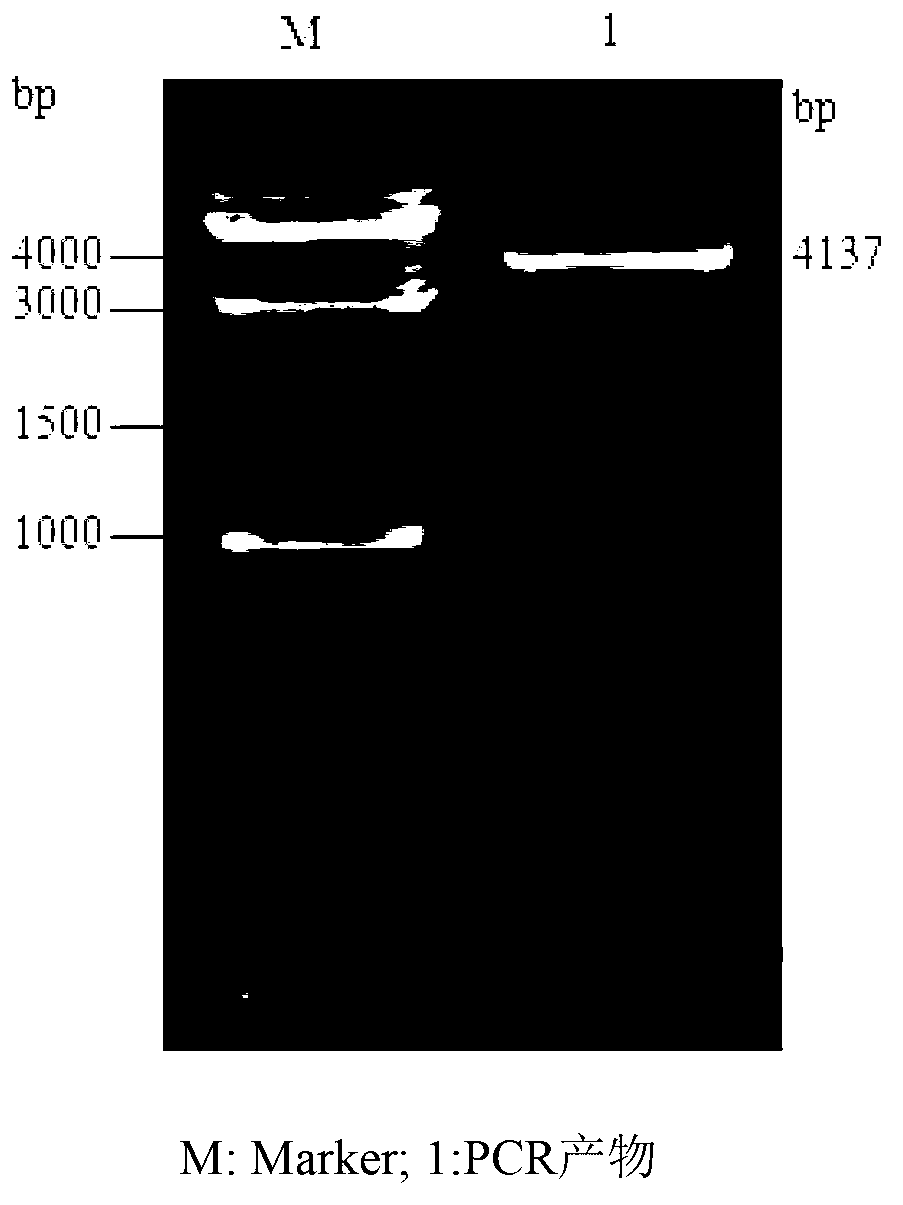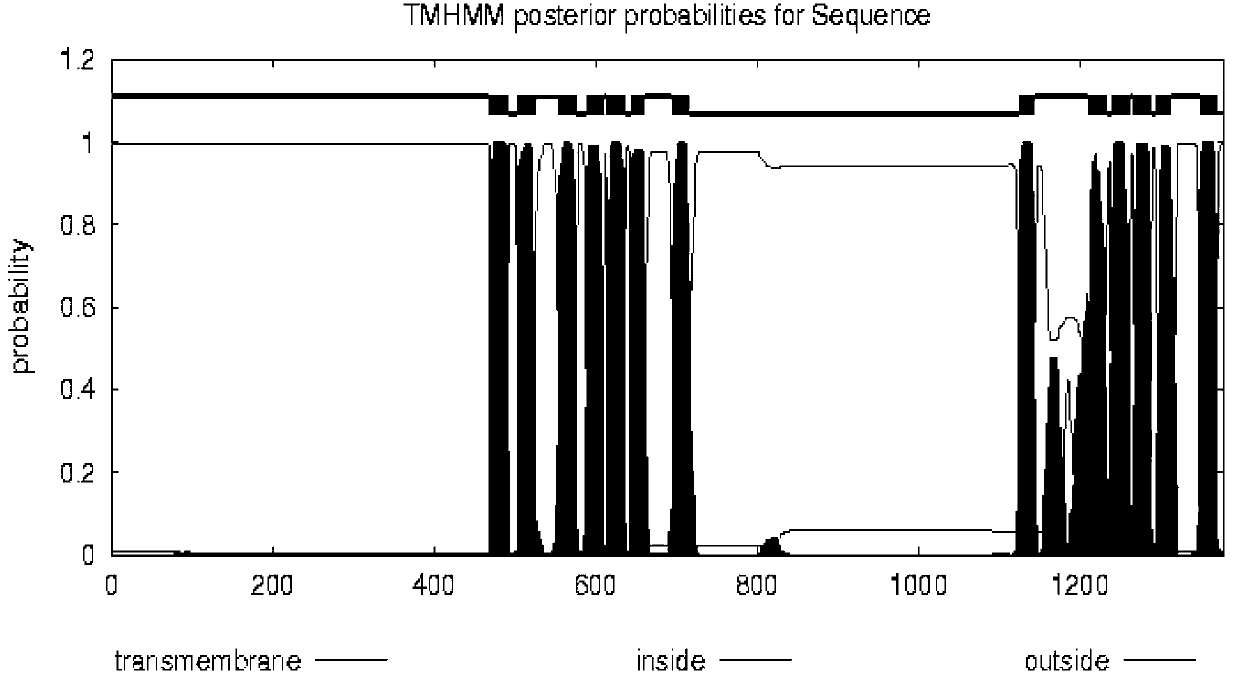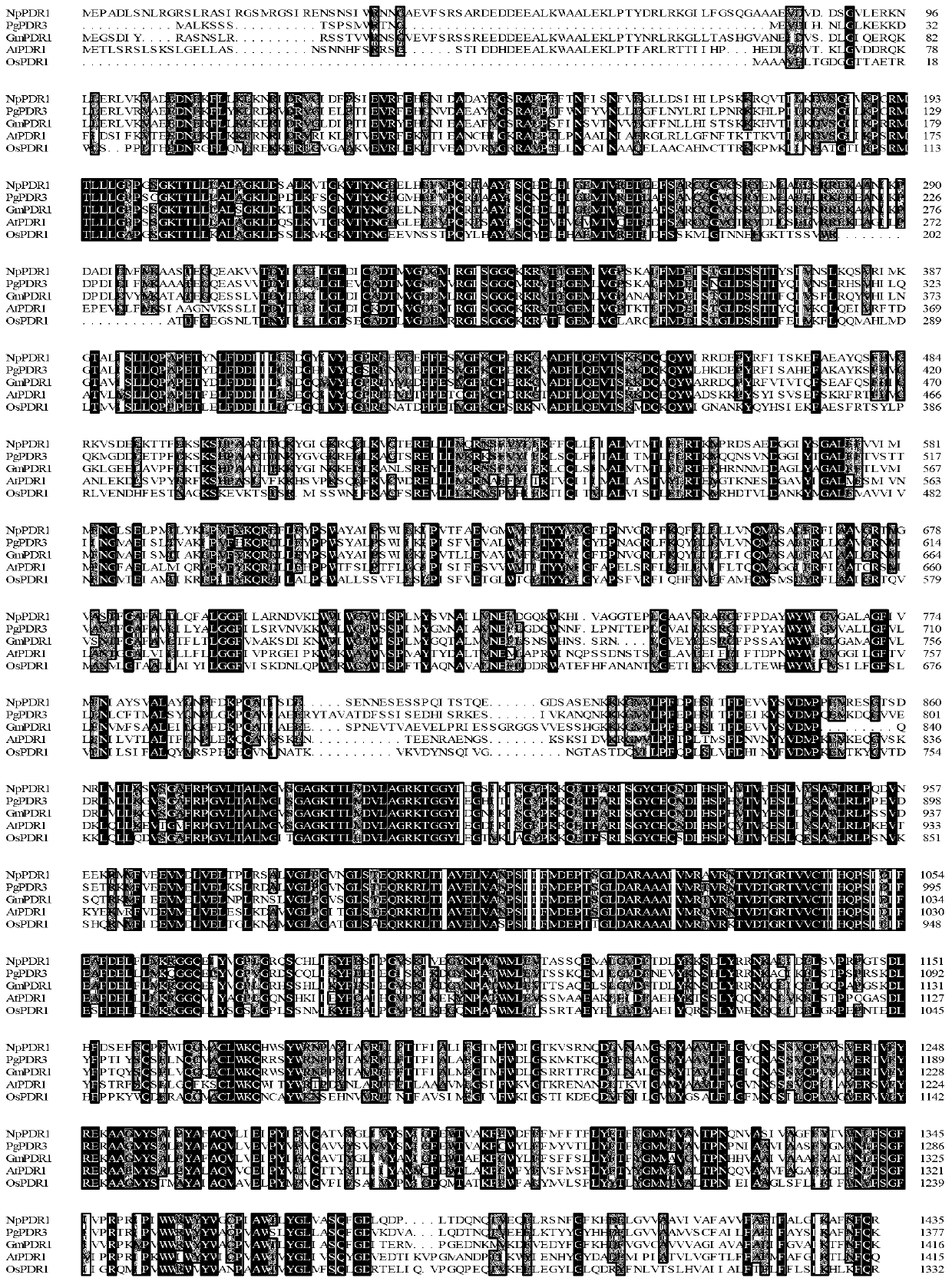PgPDR3 gene and application of encoding protein of PgPDR3 gene in regulating transport and accumulation of ginsenosides
A ginsenoside, gene technology, applied in the application, genetic engineering, plant genetic improvement and other directions
- Summary
- Abstract
- Description
- Claims
- Application Information
AI Technical Summary
Problems solved by technology
Method used
Image
Examples
Embodiment 1
[0020] Implementation Example 1 The acquisition of PgPDR3 gene
[0021] 1. Ginseng suspension cell culture
[0022] (1) Take four-year-old ginseng roots from the ginseng production area of Changbai Mountain in Jilin, soak in tap water for 45 minutes, rinse twice, first soak in 75% ethanol for 30 seconds (sec), rinse twice with sterile water, and use it on the ultra-clean workbench in the sterile room 0.1%HgCl 2 Disinfect, stir constantly, and rinse with sterile distilled water 4-5 times.
[0023] (2) Under sterile conditions, inoculate the sterilized explants into MS medium containing 2,4-D (2.0 mg / L) and KT (0.5 mg / L). After 3 subcultures, the explants were completely dedifferentiated. After the callus was completely formed, 6 explants were inoculated per 100ml Erlenmeyer flask. Subculture to supplement the nutrients and other requirements of the culture. The first subculture was carried out 30 days after inoculation, and then every 3-4 weeks.
[0024] (3) After the ca...
Embodiment 2
[0122] Implementation example 2 construction and transformation of expression vector
[0123] 1. Construction of plant overexpression vectors and screening of transgenic plants
[0124] (1) Digest pBIl2 1 and PgPDR3 with BamH I and Sac I respectively, and recover pBIl2 1 vector and PgPDR3 gene fragment. The two fragments were ligated and transformed into DH5α, and the recombinant was screened out, and the recombinant plasmid was named pBI-PgPDR3. The upstream and downstream primers for amplifying the PgPDR3 gene are respectively:
[0125] PgPDR 3:F1:5'-CG GGATCC CGCACCATGGCATTAAAAAGTAGCAG-3'; (SEQ ID N0.11)
[0126] R1:5'-CGC GAGCTC GGCCATTTTGTTATTCTCTTTTGG-3'. (SEQ ID N0.12)
[0127] The underlined part is the restriction site of BamH I and Sac I.
[0128] (2) Preparation of Agrobacterium tumefaciens competent cells
[0129] ① Streak culture of Agrobacterium LBA4404 on YEB plate containing 100 μg / ml rifamycin, culture in dark at 28°C for 2 days.
[0130] ②Pick a si...
PUM
 Login to View More
Login to View More Abstract
Description
Claims
Application Information
 Login to View More
Login to View More - R&D
- Intellectual Property
- Life Sciences
- Materials
- Tech Scout
- Unparalleled Data Quality
- Higher Quality Content
- 60% Fewer Hallucinations
Browse by: Latest US Patents, China's latest patents, Technical Efficacy Thesaurus, Application Domain, Technology Topic, Popular Technical Reports.
© 2025 PatSnap. All rights reserved.Legal|Privacy policy|Modern Slavery Act Transparency Statement|Sitemap|About US| Contact US: help@patsnap.com



